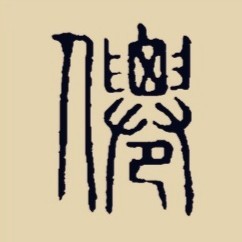 meira
meira -
规则变化
1) 一般情况加s
例如:map-maps boy-boys girl-girls pen-pens bag-bags car-cars
(清辅音后读/s/,浊辅音和元音后读/z/,/s/、/z/、/du0292/等音后发/iz/)
2) 以s, sh, ch, x结尾加es,读/iz/。
例如:bus-buses watch-watches box-boxes brush-brushes
3) 以辅音字母+y结尾,变y为i再加es,读/iz/。
例如:baby---babies city-cities country-countries
4) 以y结尾的专有名词或元音字母+y结尾的名词变复数时,直接加s,读/z/
例如:monkey---monkeys holiday---holidays Mary---Marys(专有名词)
5) 以o结尾的词部分加s,部分加es。有生命加es 无生命加s 只是对部分词汇的记忆方法,不符合于所有以o结尾的词汇。
例如:potato - potatoes(土豆), echo - echoes(回声),zoo - zoos(动物园),bamboo - bamboos(竹子)
6)有些以f或fe结尾的,把f或fe变ve加s,读/vz/,例如:leaf-leaves shelf-shelves
不规则变化
1) child---children foot---feet tooth---teeth
mouse---mice man---men woman---women
注意:由一个词加 man 或 woman构成的合成词,其复数形式也是 -men 和-women,
如an Englishman,two Englishmen。
但German不是合成词,故复数形式为Germans;Bowman是姓,其复数是the Bowmans。
2)单复同形,
如:deer,sheep,fish,Chinese,Japanese ,li,jin,yuan,two li,three mu,four jin等。
但除人民币的元、角、分外,美元、英镑、法郎等都有复数形式。
如:a dollar, two dollars; a meter, two meters。
 莫妮卡住了
莫妮卡住了 -
名词的词形变化
1.不规则复数形式
1)来自古英语的复数形式,如:
child---children foot---feet tooth---teeth goose---geese
man---men woman---women mouse---mice louse---lice
ox---oxen penny---pence analysis---analyses appendix---appendices
parenthesis---parentheses basis---bases ellipsis---ellipses
axis---axes hypothesis---hypotheses oasis---oases crisis----crises
criterion---criteria phenomenon---phenomena datum---data medium---media
bacterium---bacteria nucleus---nuclei fungus---fungi stimulus---stimuli
alumnus---alumni focus---foci radius---radii terminus---termini
larva---larvae alga---algae formula---formulae
#当代美国英语中往往把data当做单数用,因此常见到复数形式datas。另外,lens是一个单数可数名词,其复数形式为lenses。
1)词尾读音为[f]并以-f或0-fe结尾的名词复数形式有以下几种情况:
a)规则形式:
belief---beliefs chief----chiefs cliff----cliffs grief----griefs
b)不规则形式,即把-f或-fe变成-v,再加-es,读音为[vz]:
calf---calves half---halves leaf----leaves life----lives
loaf---loaves self---shelves thief---thieves wife---wives
wolf---wolves
c)既可是规则形式又可是不规则形式:
dwarf---dwarfs/dwarves hoof---hoofs/hoves
scarf---scarfs/scarves wharf---wharfs/wharves
3)词干以-o结尾的名次有三种情况:
a)附属形式为-s:这类词包括缩略词kilos,photos;表示国籍或民族的词Filipinos,Eskimos以及radios,solos,sopranos,
studios
b)复数形式为-es,如:heroes,potatoes,tomatoes,Negroes。
c)复数有规则的和不规则的两种形式,如:
cargo---cargos/cargoes mosquito---mosquitos/mosquitoes volcano---volacbos/volcanoes
2.单复数同形的名词
1)某些动物名词,如:deer,grouse,salmon,trout,carp,bison,sheep等
2)以-ese或-ss结尾的表示民族或国籍的名词,如:Chinses,Japanese,Portuguese,Swiss,Vietnamese等
3)某些以-s结尾的名词,如:barracks,corps,crossroads,gallows,headquarters,means,series,species,works等
4)某些表示计量单位的名词,如:horsepower,hertz,kilohertz,li,mu等
其他一些名词,如:aircraft,spacercarft,craft,offspring等。其中请特别注意-s结尾的单复数同形的名词,它们是考试的重点!!
3.不可数名词
不可数名词前一般不需要加定冠词,永远不能加不定冠词!
例如下列用法均属错误:
the mathematics the banking a cloth an equipment
不可数名词作主语,谓语要用单数形式。
如:Water is important.
但如果不可数名词前面被piece,drop,set等词修饰时,谓语应该与piece,drop,set等的单复数形式保持一致
例如:Few drops of water are needed to save the flower.
下面是典型的不可数名词,是应该熟记的!!
air,smoke,steam,vapor,hydrogen,oxygen,nitrogen,water,oil,soup,juice,ink,rain,snow,ice,tea,coffee,wine,sunlight,sunshine,
lightning,thunder,weather,darkness,heat,light,electricity,energy,power,sugar,salt,rice,corn,powder,flour,sand,dust,dirt,
garbage,grass,hair,furniture,luggage,clothing,mail,equipment,food,meat,fruit,bread,toast,stone,iron,copper,chalk,paper,
glass,wood,money,poetry,jewelry,machinery,weaponry,personnel,scenery,happiness,kindness,honesty,friendship,attention,wi
sdom,success,courage,bravery,health,wealth,ignorance,trouble,ease,luck,laughter,love,peace,news,information,knowledge,
intelligence,fun,pleasure,entertainment,enjoyment,recreation,relaxation,progress,room,work,homework,population,percent,
mathematics,econmics,statistics,meteorology,anthropology,architecture,physics,photography,ethics,politics,mechanics,
genetics,geology,geography,chemistry,philosophy,biology,history,music,English,measles,mumps,diabetes,malaria,pediatrics,
obsterics
请特别注意其中以-s结尾的不可数名词,大家平时应该积累遇到的不可数名词
!!注意下列可数名词!!
poet poem essay newspaper machine weapon scene photograph photographer
英语中有许多名词既可作可数,又可作不可数。如:hair作“人或动物的毛”的时候是可数名词,作头发解释时是不可数名词。判断一个词是否可数,除了记忆以外, 主要看题中该名词的修饰词来决定。如:much只能修饰不可数名词
4.单数形式和复数形式的词义不同的名词
英语中有些名词的复数形式的词义不同于单数形式,如:
air(空气)---air(气派) arm(手臂)---arms(武器) ash(灰)---ashes(骨灰;废墟)
authority(权利)---authorities(当局) cloth(织物)---clothes(衣服) content(含量)---contents(目录)
custom(习惯)---customs(海关;关税) damage(损害)---damages(赔偿金) force(力量)---forces(武装部队)
glass(玻璃)---glasses(眼镜) good(利益)---goods(货物) green(绿色)---greens(青菜)
letter(字母)---letters(文学) manner(方式)---manners(举止,仪态) minute(分钟)---minutes(记录)
pain(痛苦)---pains(劳苦) papaer(纸)---papers(文件) quarter(1/4)---quarter(宿舍)
spectacle(光景)---spectacles(眼镜) spirit(精神)--- spirits(烈性酒) time(时间)---times(时代)
water(水)---waters(水域) wood(木头)---woods(森林) work(工作)---works(工厂)
总结
1.单数名词不能单独存在,一般前面应该有限定词修饰。
2.不定冠词a/an永远只能修饰单数可数名词。
3.every和each永远只能修饰单数可数名词。
但every+数词+复数名词是正确的,如:every ten years
4.序数词后面一般使用单数可数名词。
5.anther永远只修饰单数可数名词
但another+数词/few+复数名词是正确的,如:another eight years;another few books
6.other通常修饰复数名词,也可修饰不可数名词。
但the other+is/was 单数名词或any other+单数名词是正确的,如
We have two girls in this team.One is Mary,the other is Alice.
Henry Smith is taller than any other student in his class.
7.下列词和短语只能修饰复数名词
these,those,many,various,several,numerous,diverse,few,a few,both,a (good/large/great) number of,numbers of,one of
8.大于1的词数只能修饰复数名词
!!牢记的结构:one/two/many+of+限定词+复数名词!!
9.只能修饰单数可数名词的词:
one,anther,a/an,this,that,each,every,either,such a,many a
!!注意!!many student以及many a student
10.只能修饰复数可数名词的词:
>1的数字(two,six.....),hundred,thousand,million,both,several,many,few,a few,these,those,a (good/large/great) number of
numbers of,the numberof,numbers of,numerous,various,diverse,a series of,a wide range of,a collevtion of
11.只修饰不可数名词的词:
much,little,a litter,a great deal of,a great amount of,a piece of,an article of
12.既可修饰不可数又能修饰可数的词:
all (of) a lot of some (of) lots of any (of)
plenty of most (of) half (of) a wealth of (a) part of
enough (of) the rest of other one third of such
no a variety of
